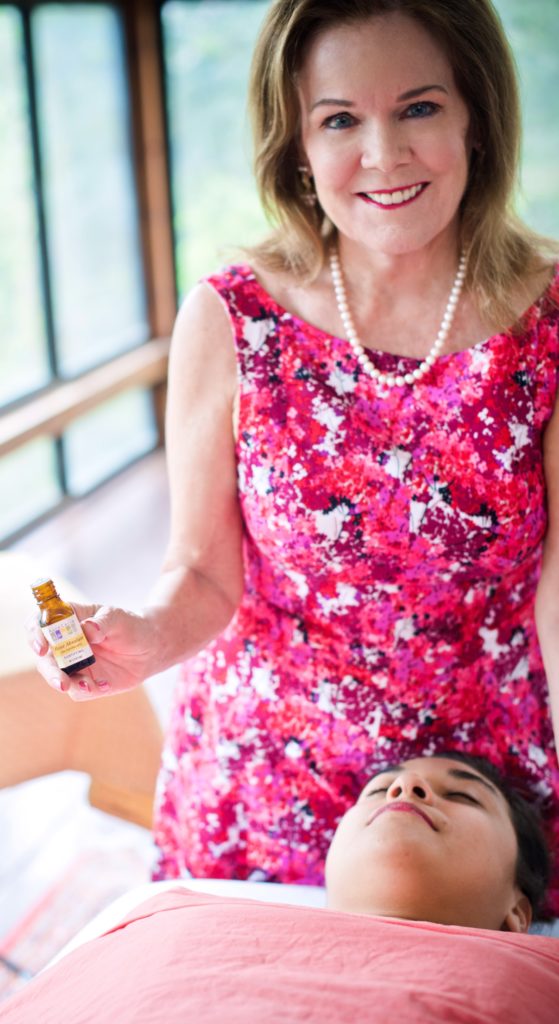What Is Aromatherapy?
Aromatherapy is the art and science of utilizing naturally extracted aromatic essences to balance, harmonize, and promote the health of body, mind, and spirit. It is a natural therapy using various essential oils gathered from certain fragrant plants that have the ability to aid us both physically and psychologically.
Essential oils are potent, volatile essences found in different parts of the plant such as the flowers, twigs, leaves and bark, or in the rind of fruit. For example, in roses the oil is in the flowers, in basil it is in the leaves and in sandalwood it is in the wood. These fragrances can be used either alone or in combinations to create desired effects.
How Aromatherapy Essential Oils Work
For hundreds of years essential oils, derived from roots, herbs, and flowers have been used to enhance emotional, spiritual, and physical well-being.
Essential oils have an immediate impact on our sense of smell, also known as olfaction. When essential oils are inhaled, olfactory receptor cells are stimulated and the impulse is transmitted to the emotional center of the brain, or limbic system.
The limbic system is connected to areas of the brain linked to breathing and blood circulation, memory, and the endocrine glands that regulate hormone levels in the body. The properties of the oil, its fragrance, and its effects determine how these systems are stimulated and which neurotransmitters and feel-good, happy-hormones are released.
Aromatherapy massage is a gentle massage using essential oils that can be softening, healing, nourishing, and rejuvenating to the skin. The general benefits of massage combined with the healing benefits of certain essential oils can be very dynamic. When used in massage, essential oils are not only inhaled, but also absorbed through the skin. The oils penetrate the tissues and find their way into the bloodstream where they are transported to the organs and other systems of the body, including the nervous system. Essential oils have differing rates of absorption, varying from 20 minutes to 2 hours, so it is probably best not to bathe or shower directly following a massage to ensure maximum penetration and effectiveness of the oils.
Here are some of the general benefits of using utilizing essential oils in a massage therapy practice – remember that each essential oil carries its own unique benefits.
Physical Benefits
-Relaxes or stimulates the recipient -Eases muscular aches and pains while improving muscle tone
-Relieves minor discomforts -Calms or stimulates the nervous system (depending on the oil)
-Diminishes tension headaches -Stimulates respiratory system
-Assists in reducing nerve entrapment and congestion -Stimulates the immune system, strengthening resistance to disease
-Improves circulation and lymphatic drainage, and helps to eliminate toxins from the body
Mental and Emotional Benefits
-Creates a feeling of well-being –Reduces levels of anxiety
-Calms or enhances mental activity and relaxation -Satisfies the need for caring and nurturing touch
-Increases awareness of the mind-body connection –Releases endorphins, the brain’s natural opiates, which encourages a feeling of well-being
Lavender Aromatherapy Benefits
Lavender is considered the most useful of all essential oils. Known to aid in the relief of headaches, insomnia, tension, and stress, lavender has therapeutic properties that have been well chronicled around the world. The essential oil of lavender is widely used for various illnesses and medical problems.
The flowery fragrance of lavender makes it the most versatile and useful essential oil. Essential oil of lavender is used in aromatherapy practices to get rid of depression, fight tiredness and enhance relaxation. A drop of lavender oil used in an aromatherapy diffuser is reputed to help relieve headaches, decrease body pain and help with insomnia. Lavender is found to increase the emotion of happiness through its calming and sedating effects.
Eucalyptus Aromatherapy Benefits
The benefits of eucalyptus essential oil can be attributed to its anti-inflammatory, antispasmodic, decongestant, deodorant, antiseptic, antibacterial and stimulating properties. The numerous benefits of eucalyptus oils include the fact that it aids in the reduction of mucous deposition and helps with a variety of breathing and respiratory issues such as asthma, bronchitis, nasal congestion, and sinusitis.
Since eucalyptus essential oil is analgesic and anti-inflammatory, it is also useful in relieving muscles from stiffness, aches, pains, and even nerve pain. Alternatively, eucalyptus can be used as a stimulant to remove mental exhaustion, stress, and sluggishness.
Clary Sage Aromatherapy Benefits
Clary Sage essential oil is known to be powerful for clearing and uplifting to the body, mind, and spirit. As a potent mood enhancer and antidepressant, Clary Sage balances hormones within the body to soothe nervous tension and anxiety. It is used to boost self esteem, confidence, and mental strength to lighten the mood and clearing negative energy from a healing session.
Clary Sage is also useful in the treatment of spasms and related ailments like muscle cramps, respiratory system cramps, muscle stress, menstrual cramps, spasmodic coughs, stomachaches, headaches and migraines. This is done by relaxing nerve impulses to reduce the occurrence of uncontrollable spasms while being soothing to the skin.
Clary Sage kills bacteria and fungi, curbs the growth of bacterial infections, and protects against new infections with anti-bacterial properties. Clary Sage can be used to clear energy and disinfect the air within a healing session.
Incorporating Aromatherapy into Your Practice
Aromatherapy is a great healing modality to incorporate into your massage practice and expand the services you provide for your clients. Depending on the desired effect, essential oils can be added to carrier oils to be used as massage oils in your sessions. Here are a few some carrier oils that can be infused with aromatherapy essential oils:
–Almond oil -Avocado oil
-Apricot oil -Coconut oil
-Grapeseed oil -Jojoba oil
-Olive oil -Sesame seed oil
There are many other mediums for using essential oils for aromatherapy, such as:
-Body lotion or oil -Chest rub
-Compress –Conditioner
-Facial mist –Facial oil
-Full bath –Footbath
-Humidifier –Room spray
Indications for Aromatherapy
Keep in mind that each unique essential oil is believed to possess its own indications and contraindications. General Indications for an Aromatherapy Session vary with the aromatherapy selected for use with:
- Stress and tension
- Muscular tension
- Headaches
- Fatigue
Contraindications for Aromatherapy
- Infants, young children, and people with skin allergies may want to approach aromatherapy gingerly
- A person suffering from a migraine may not tolerate aromatherapy fragrances well. Check with your client prior to offering aromatherapy.
- Aromatherapy is not intended as a substitute for proper medical advice. Advise your clients to consult their physicians or health care professionals if they are pregnant or elderly or if they have any chronic or recurring conditions. Honor your scope of practice and refer your client to a qualified health care practitioner as indicated by your code of ethics.
- Essential oils are potent, so exercise great care in blending and use. With the exception of lavender, never apply essential oils directly to the skin—instead, mix the recommended amount in a base oil or lotion. Test all oils for sensitivity, and advise your clients to consult their physicians or health care practitioners before using essential oils as indicated.
Inspirations and insights for this blog post were derived from the Techniques in the Spa World Massage Therapy Manual. For more information about aromatherapy continuing education please visit the Ariana Institute for Wellness Education or check out the Aromatic Medicine Blog for Ariana’s personal story and experiences in the realm of aromatherapy.



